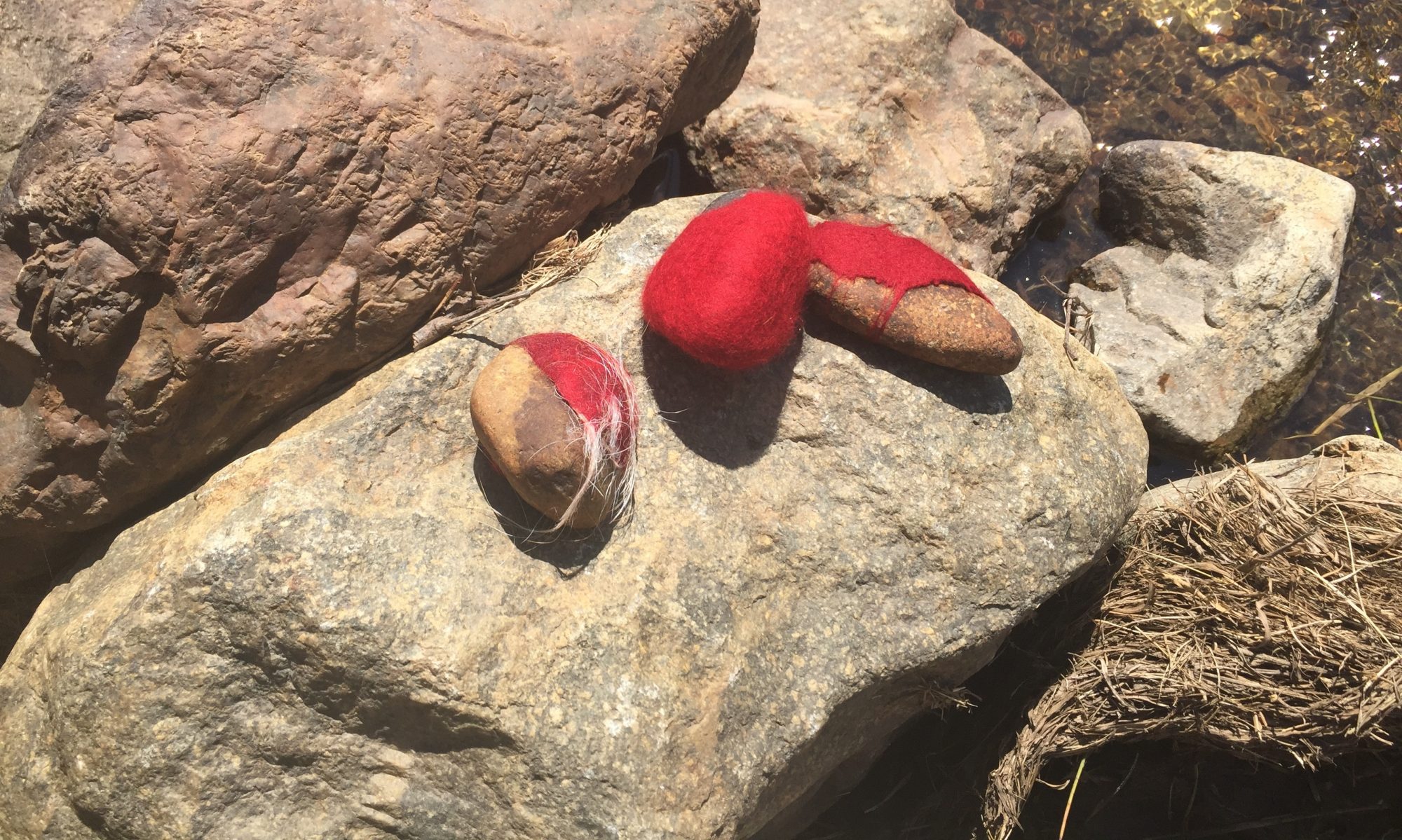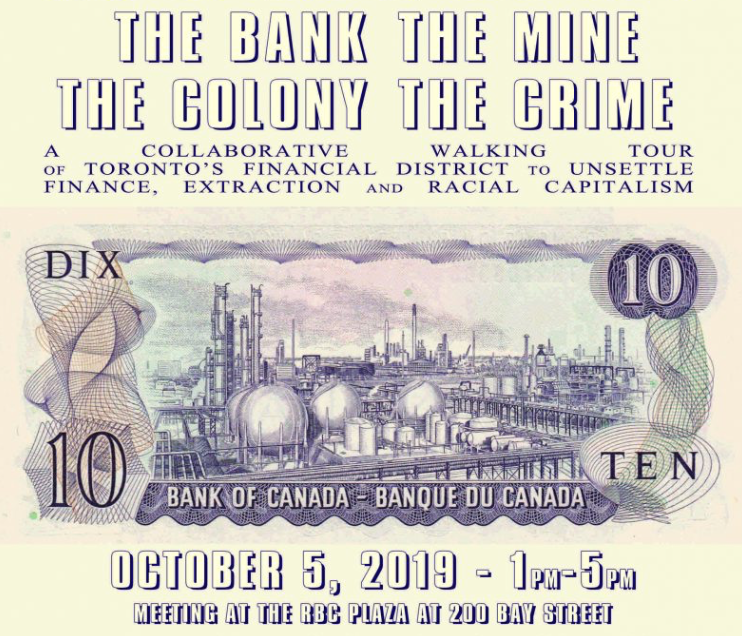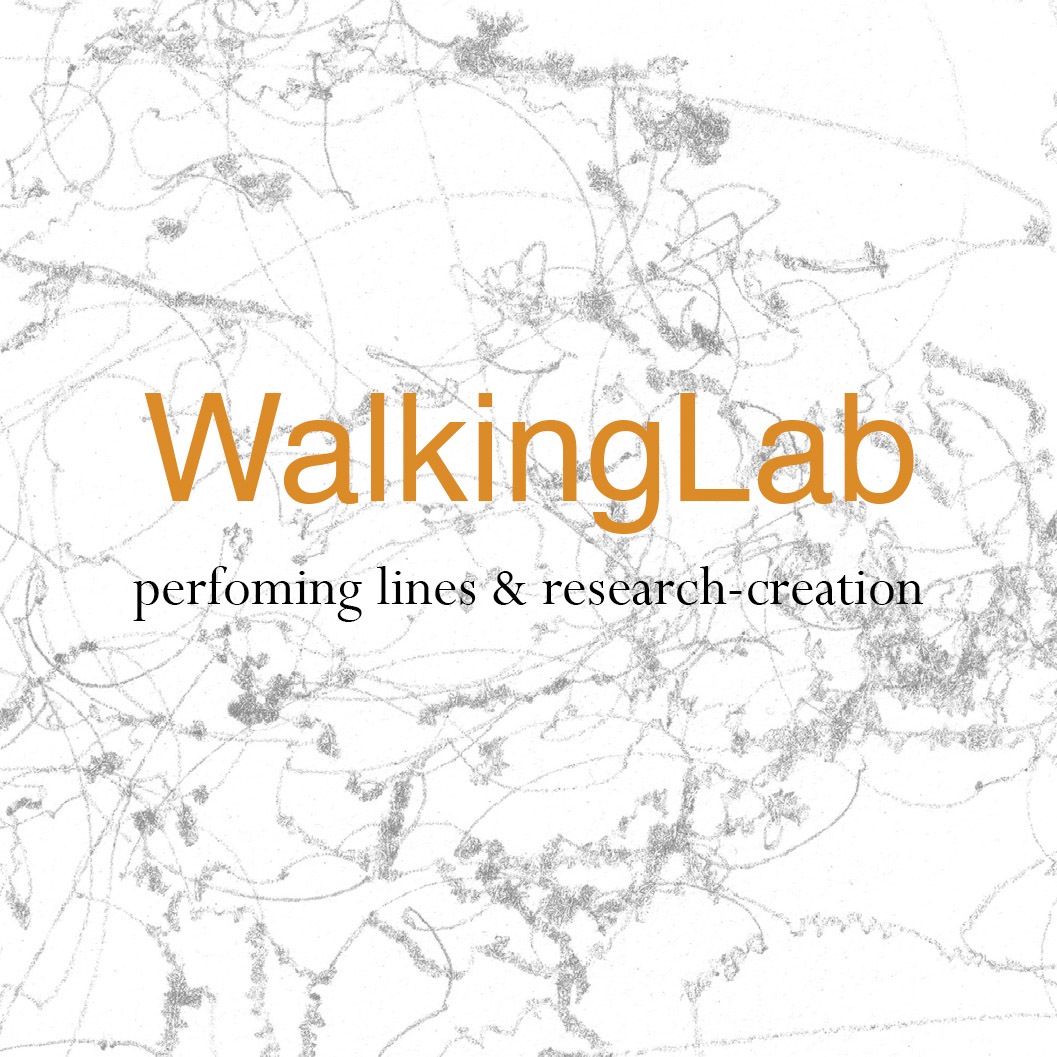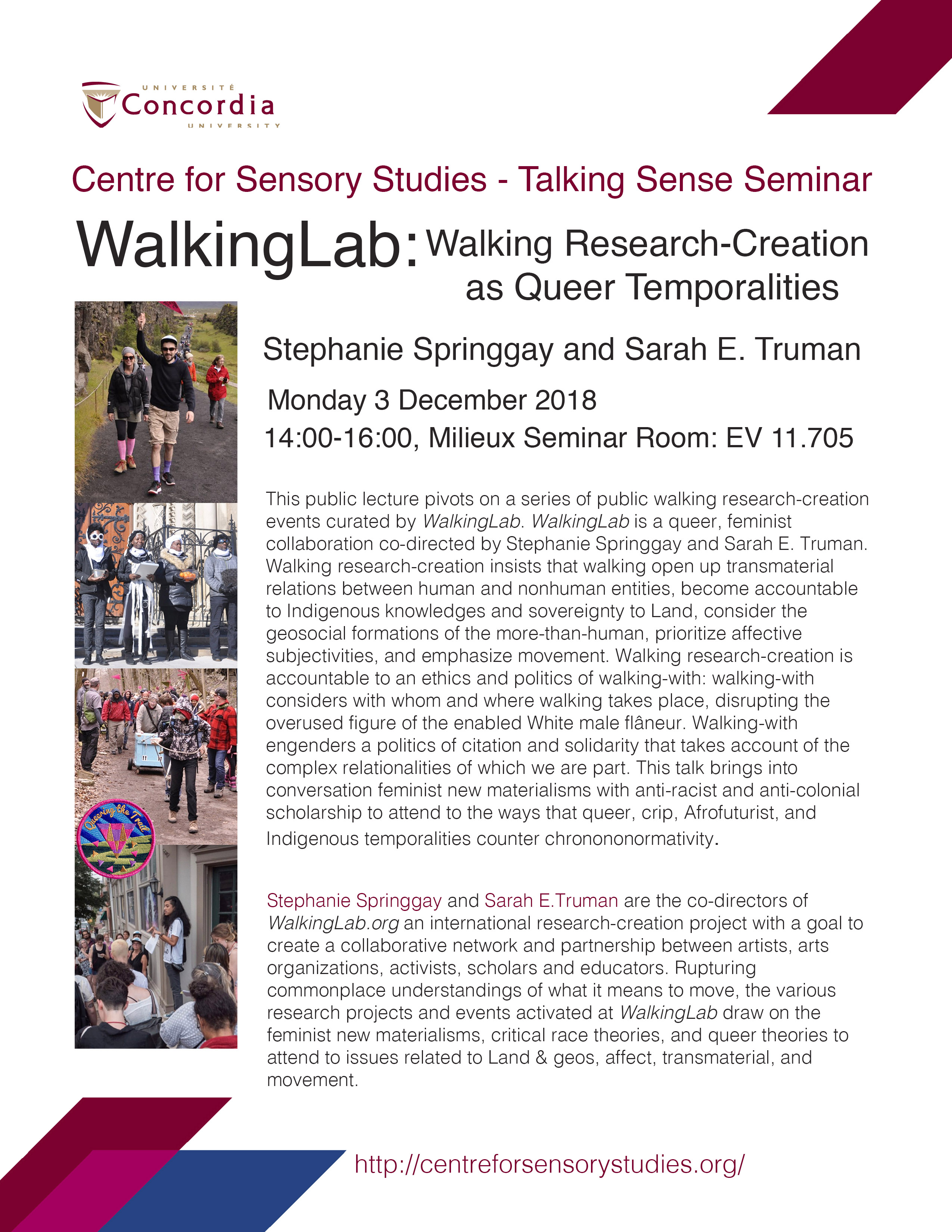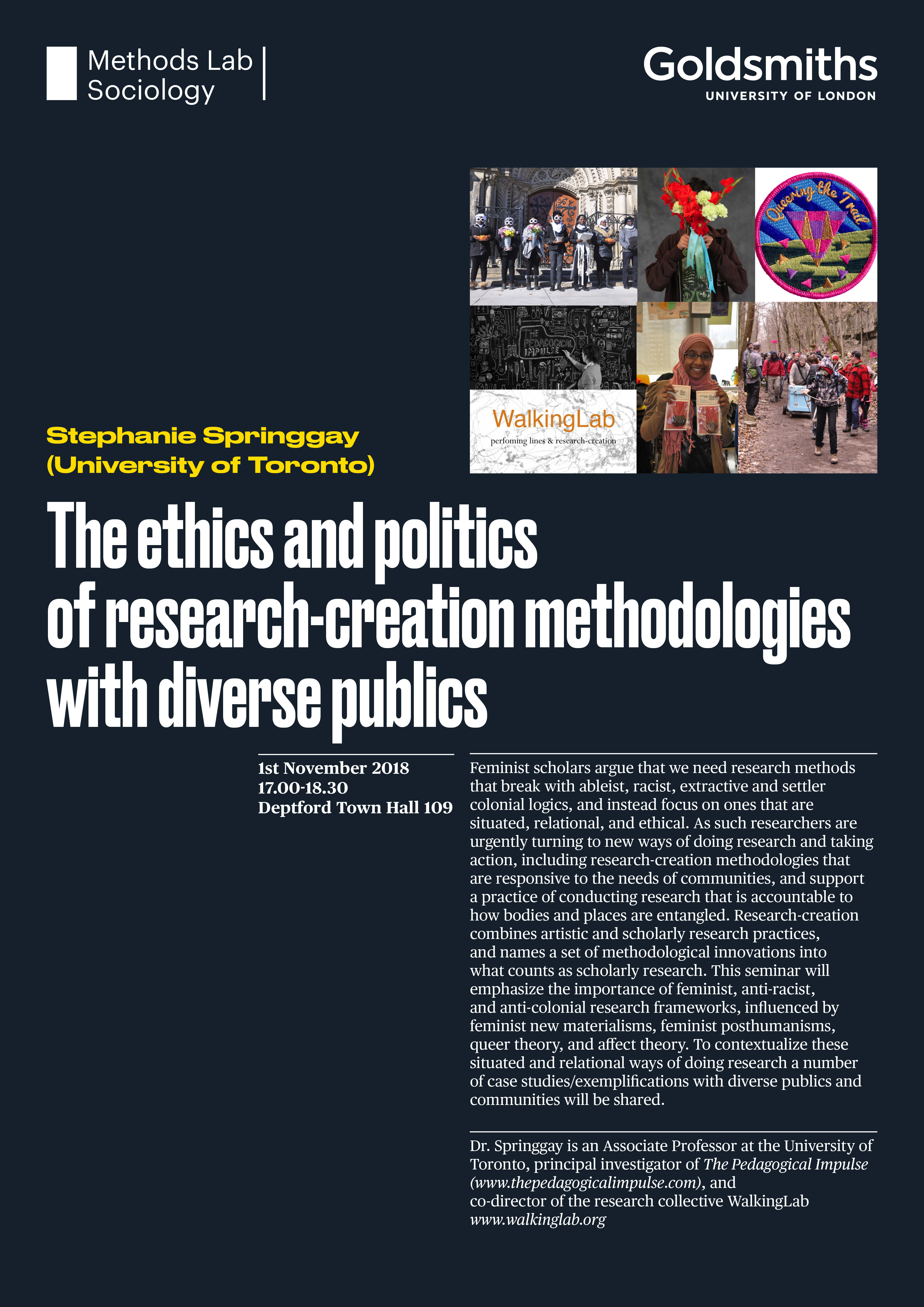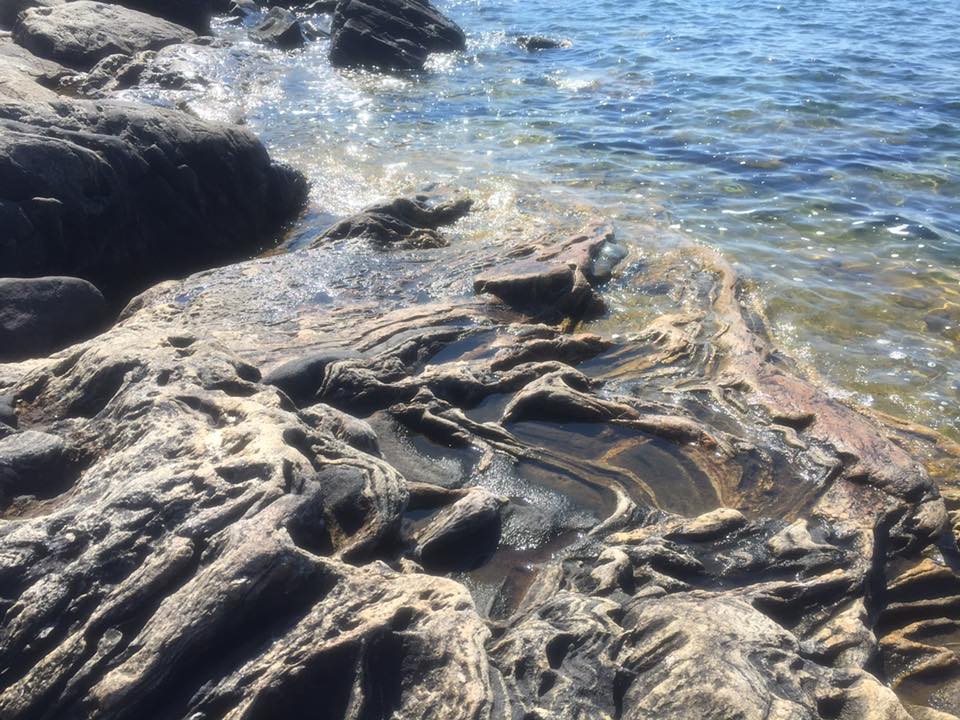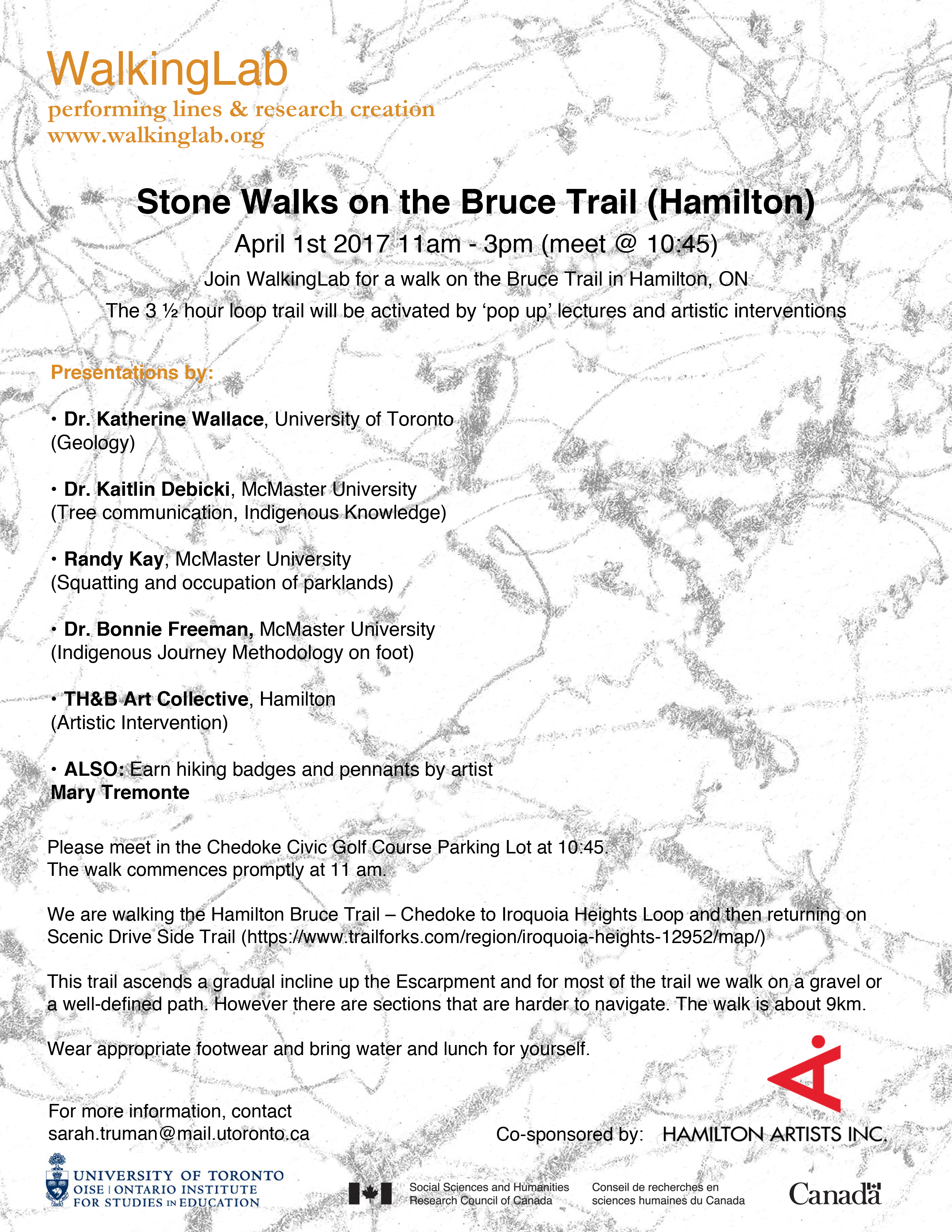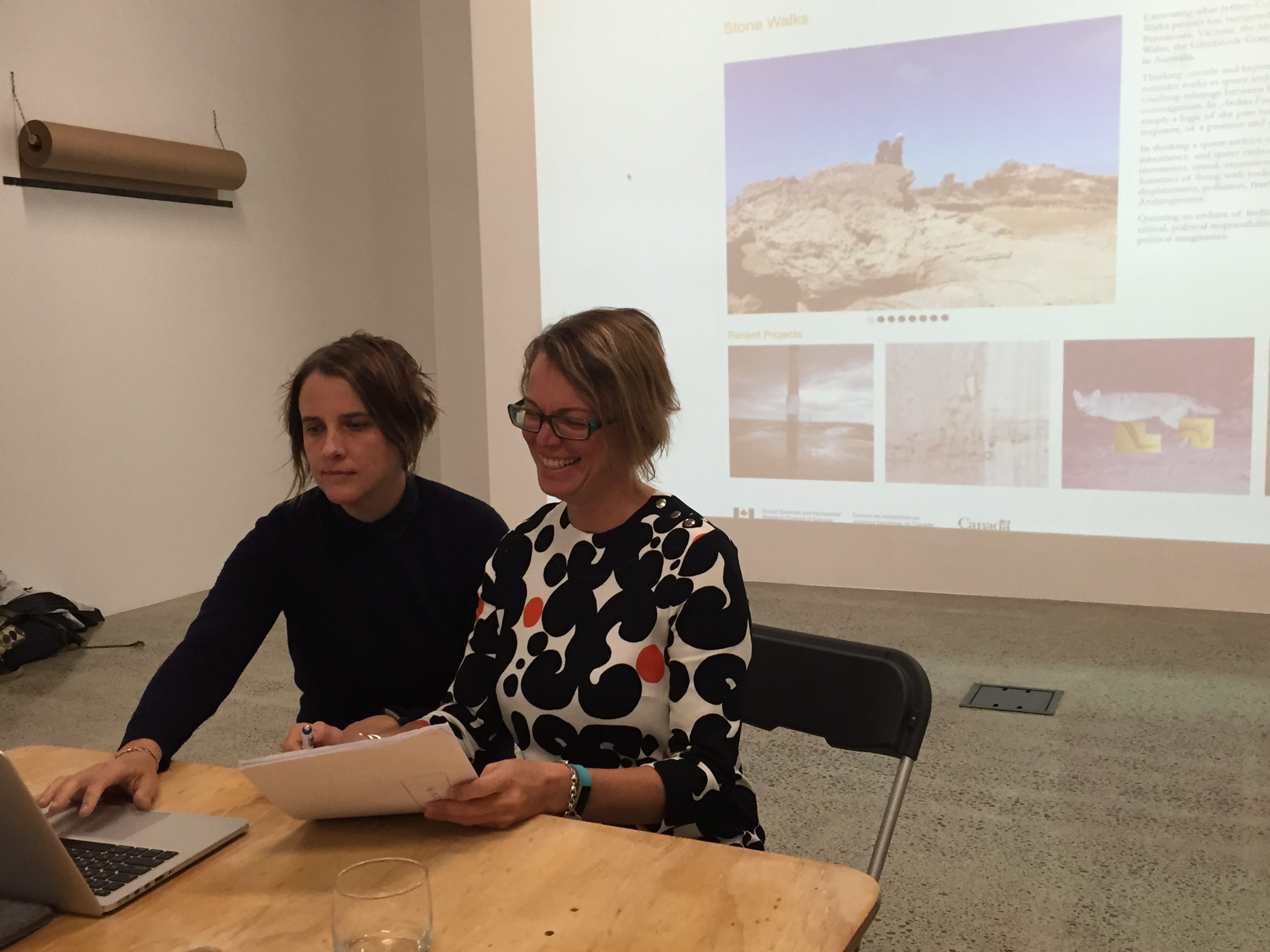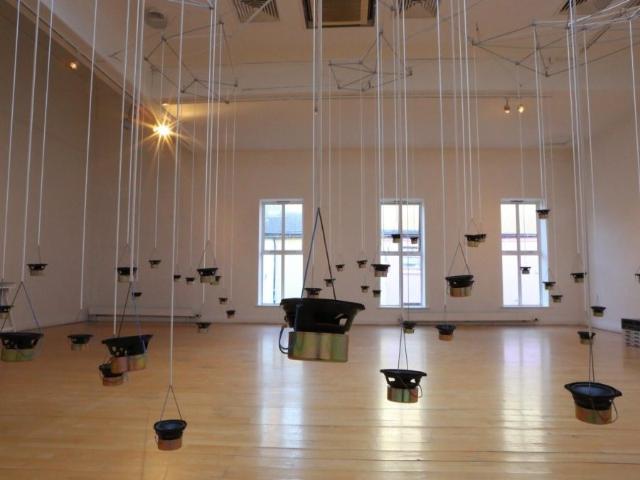WalkingLab is leading a walk on the Ice Age to Anthropocene Age Trail
Stephanie is a “Key Interpreter” and leading a walk as WalkingLab as part of the Over the Levee, Under the Plow a five-day Itinerant Seminar taking place in southwest Wisconsin and northwest Illinois from September 25-29, 2019. The walk is part of the year-long initiative Mississippi: An Anthropocene River, co-sponsored by the Haus der Kulturen der Welt and the Max Planck Institute for the History of Science in Berlin.
Stephanie will deliver a Keynote on the second day of the walk.
Public Lecture at Concordia University
Stephanie Springgay will deliver a public lecture ‘Walking Research-Creation as Queer Temporalities’ at the Centre for Sensory Studies at Concordia University.
Invited Lecture at Goldsmiths Methods Lab
Dr. Springgay will be giving a Lecture at Goldsmiths in London, November 1st 2018.
Feminist scholars argue that we need research methods that break with ableist, racist, extractive and settler colonial logics, and instead focus on ones that are situated, relational, and ethical. As such researchers are urgently turning to new ways of doing research and taking action, including research-creation methodologies that are responsive to the needs of communities, and support a practice of conducting research that is accountable to how bodies and places are entangled. Research-creation combines artistic and scholarly research practices, and names a set of methodological innovations into what counts as scholarly research. This seminar will emphasize the importance of feminist, anti-racist, and anti-colonial research frameworks, influenced by feminist new materialisms, feminist posthumanisms, queer theory, and affect theory. To contextualize these situated and relational ways of doing research a number of case studies/exemplifications with diverse publics and communities will be shared.
Indelible Refusal
This series of public lectures, panel discussions, film screenings, workshops, artistic walking interventions, performances, and master classes aim to actively engage in pedagogies of refusal and solidarity. The program aims to walk-with and think-with Indigenous, Black, 2 spirit, queer and trans artists and scholars to work through concepts related to land, settler colonialism, slavery, erasure, violence, and refusal.
This event has been funded through the Jackman Humanities Institute, The Centre for Drama, Theatre & Performance Studies, University of Toronto, Curriculum, Teaching and Learning, Ontario Institute for Studies in Education (OISE), University of Toronto, Sexual Diversity Studies University of Toronto, The Centre for Comparative Literature, University of Toronto, and the Centre for Indigenous Studies, University of Toronto, and WalkingLab.
Organized by: Stephanie Springgay, Curriculum, Teaching & Learning, OISE; V.K. Preston, FAS Drama, Theatre & Performance Studies, University of Toronto.
Click here for schedule of events: https://walkinglab.org/schedule-of-events-for-indelible-refusal/
‘To the landless’: Walking as counter-cartographies and affective time WalkingLab
Stephanie Springgay and Sarah E. Truman of WalkingLab will give a Keynote introduction at the European Congress for Qualitative Research for Ali Madanipour. Their lecture will examine walking methodologies as counter-cartographies and as affective time. Like Madanipour, WalkingLab is interested in methodologies that disrupt linear and progressive conceptualizations of time. Our brief introductory talk will examine three WalkingLab projects that re-map – as a form of counter-cartography – erased and neglected histories. Taking up the ways that maps produce and reinforce geopolitical borders, and the geographies of race, we consider the ways that re-mapping offers possibilities for conceptualizing spacetimes that are regional and relational, as opposed to state sanctioned and static. As counter-cartographies the walking projects disrupt dominant narratives of place and futurity, re-mapping Land, ‘returning it to the landless.’ Walking methodologies enact what Madanipour refers to as ‘experimental temporalities,’ a kind of affective time that enables researchers to think about futurity not as something elsewhere or separate from the present, but a time that is immediate and intensive. Focusing on the issue of temporality within qualitative research methodologies Springgay and Truman take up WalkingLab research via affect theory, Afrofuturism, and the anarchive.
Stone Walks on the Bruce Trail
Stephanie’s SSHRC funded research-creation project WalkingLab is hosting a one day event on the Bruce Trail. With presentations by:
• Dr. Katherine Wallace, University of Toronto (Geology)
• Dr. Kaitlin Debicki, McMaster University (Tree communication, Indigenous Knowledge)
• Randy Kay, McMaster University (Squatting and occupation of parklands)
• Dr. Bonnie Freeman, McMaster University (Indigenous Journey Methodology on Foot)
• TH&B Art Collective, Hamilton (Artistic Intervention)
• ALSO: Earn hiking badges and pennants by artist Mary Tremonte
Stone Walks Residency at Listhus in Olafsfjordur, Iceland
August 2017: Stone Walks, Iceland. WalkingLab (Stephanie Springgay and Sarah E. Truman) will have a one artist month residency at Listhus Artist Centre in Olafsfjordur, Iceland to continue with their research on rocks as queer archives.
Extending Our Reach: Creating New Pathways Through Art, Research and Education
Stephanie Springgay and Sarah E. Truman will giving a workshop at University College Dublin’s College of Social Sciences and Law, in association with UCD Parity Studios and the School of Sociology.
The workshop is called Extending Our Reach: Creating New Pathways Through Art, Research and Education and will focus on WalkingLab and research-creation.
Conversations on Research-Creation as ‘thinking-in-movement’
Stephanie Springgay and Michael McLoughlin will conduct a walk-and-talk at the Limerick City Gallery of Art on Wednesday October 12th at 11am. The walk-and-talk will take place within McLoughlin’s exhibition Cumann: An Audio Map of Limerick and focus on social practice and the ethics of participation.
